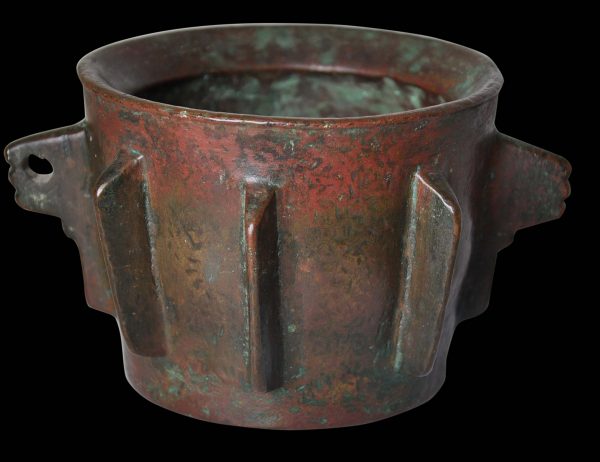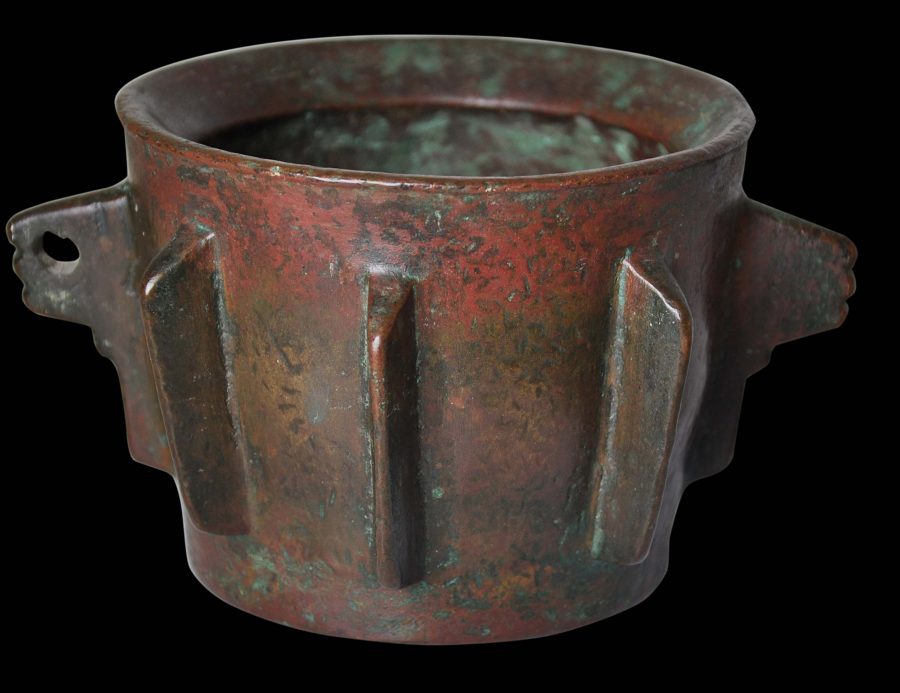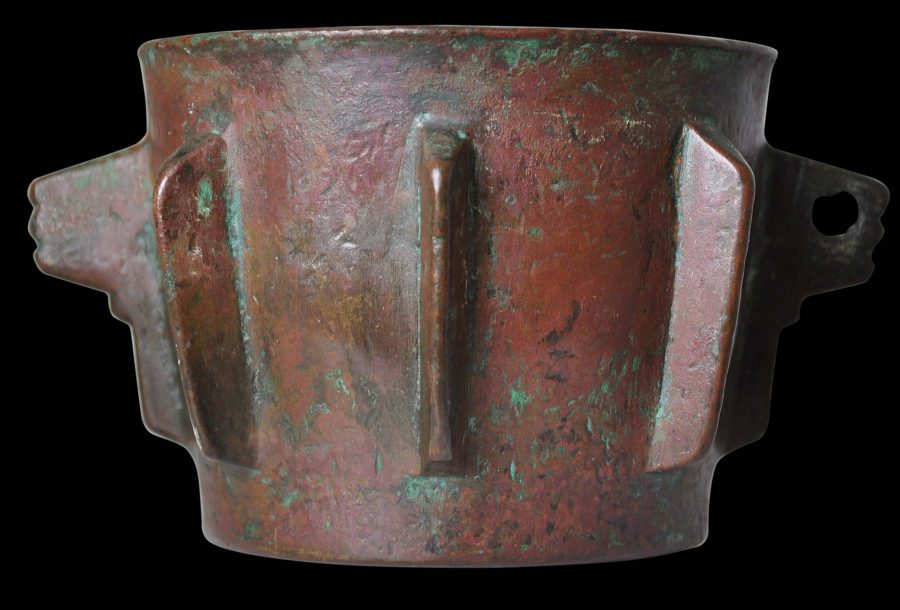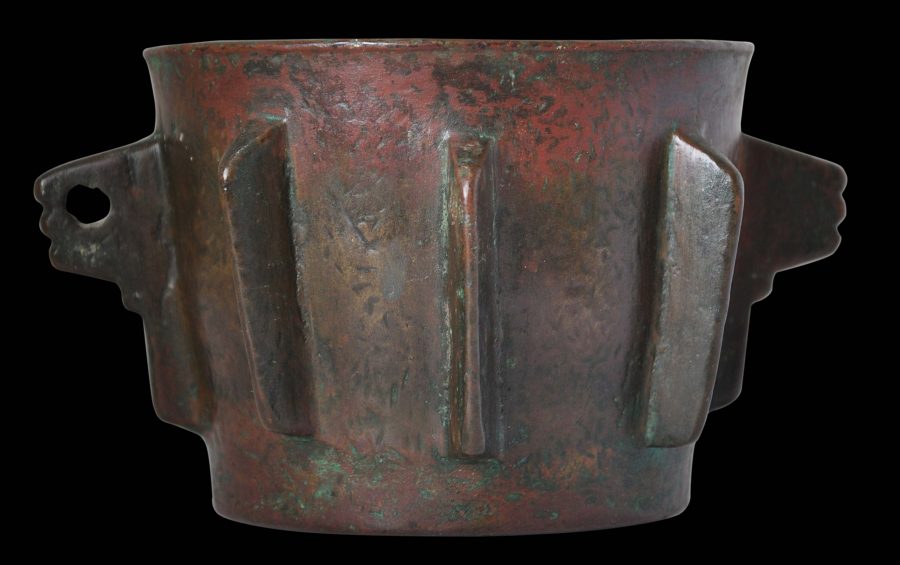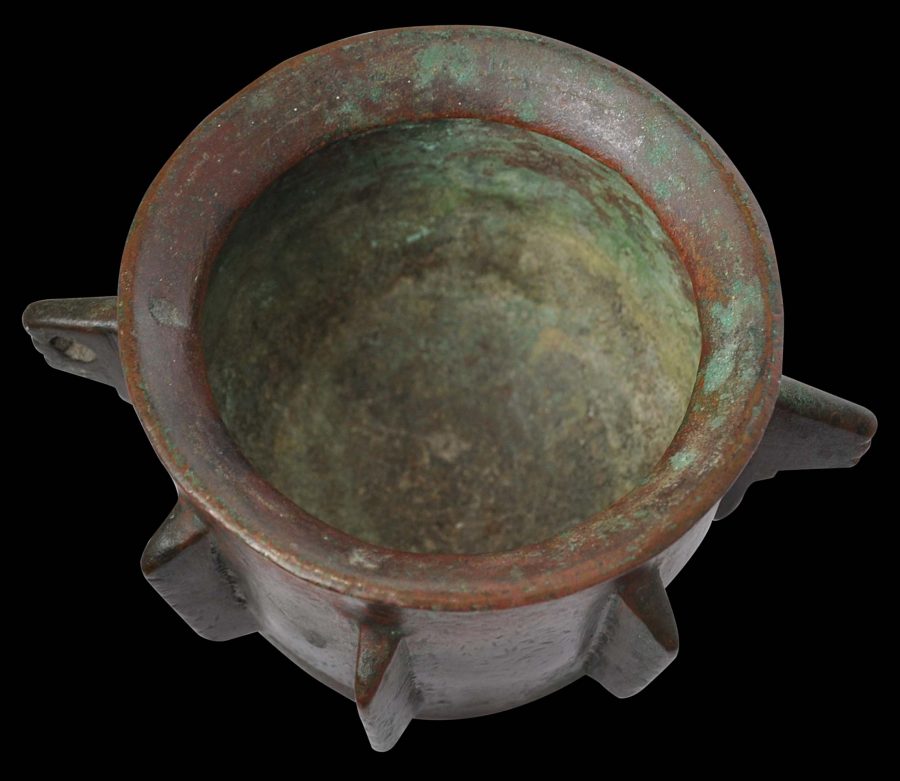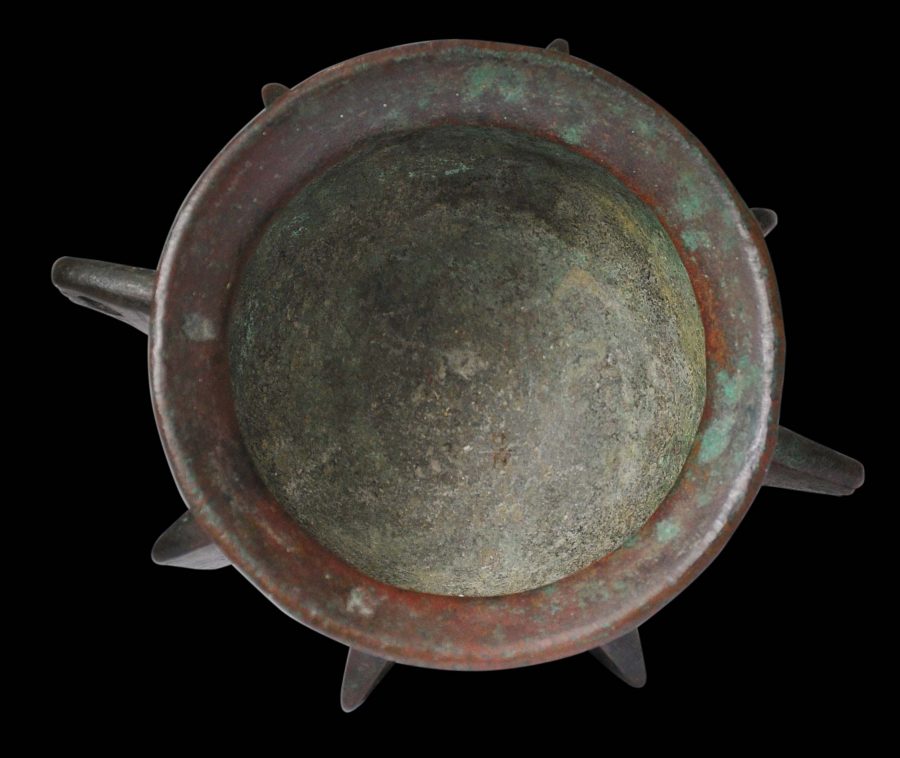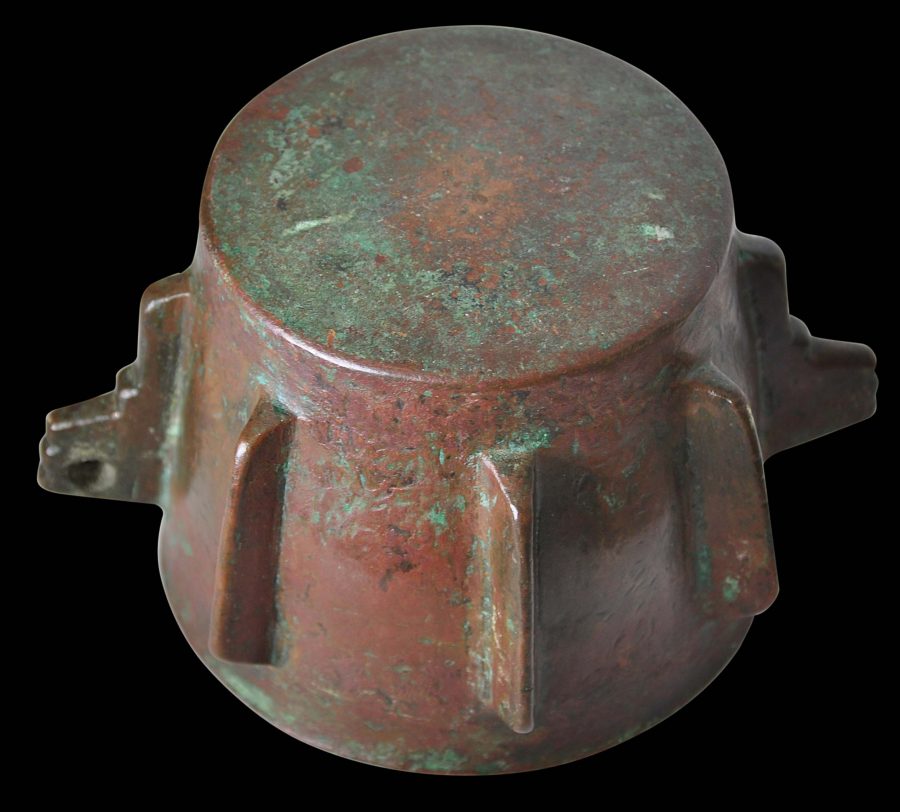This mortar, of circular form and with a cast cylindrical body with gently flaring sides, has two prominent handles on either side, one with a hole for suspension. There are an additional six more fins or flanges spread equidistant around the body. These flanges whilst giving the mortar much of its decorative appeal acted to reinforce the mortar’s body.
Mortars of this type have their origins in twelfth century Moorish Spain, and possibly earlier (one in Cordoba’s Archaeological Museum is attributed to the tenth century.) Two related but earlier examples in the Khalili Collection are illustrated in Maddison & Savage-Smith (1997, p. 299). These are ascribed to circa 13th-14th century.
A 12th-13th century example is in the collection of the Institut du Monde Arabe in Paris (see Institut du Monde Arabe, 2005, p. 185 for an illustration.) Another example forms lot 161 at Christie’s London ‘Art of the Islamic and Indian Worlds including Art from the Collection of Dr Mohammed Said Farsi’, October 5, 2010.
Such mortars were made in Spain and exported to other Mediterranean communities. They are of extremely thick cast metal so as to allow the repeated blows of a heavy pestle. Mortars such as this example often were used for grinding herbs and other ingredients for the preparation of drugs and balms.
Overall, this is a fine example, decorative and of good size. As might be expected, it is heavy for its size. It has a splendid, varying deep-red colour .
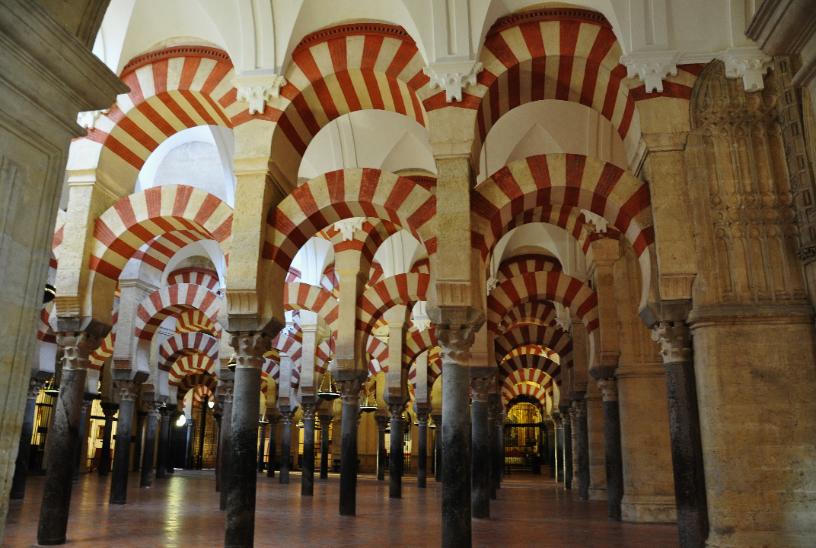
The interior of the eighth century Great Mosque in Cordoba, Spain.
(Photographed in October 2011.)

A related bronze mortar in Cordoba’s Archaeological Museum, attributed to tenth century Cordoba.
(Photographed in October 2011.)
References
Etude Tajan, ‘Art Islamiqie: Tableaux Orientalistes’, Paris, June 5, 1995.
Maddison F. & E. Savage-Smith, Science, Tools & Magic: The Nasser D. Khilili Collection of Islamic Art, The Nour Foundation, 1997.
L’Age d’Or des Sciences Arabes (Exposition Presentee a l’Institut du Monde Arabe, Paris, 25 October 2005-19 March 2006), Instute du Monde Arabe, 2005.
Christie’s South Kensington ‘Indian and Islamic Works of Art and Textiles’, April 11, 2008.
Christie’s London ‘Art of the Islamic and Indian Worlds including Art from the Collection of Dr Mohammed Said Farsi’, October 5, 2010.


